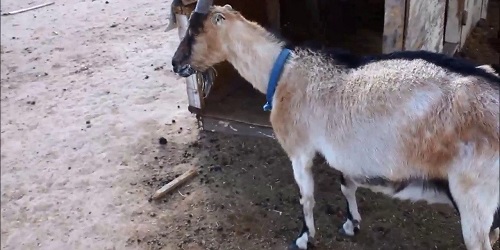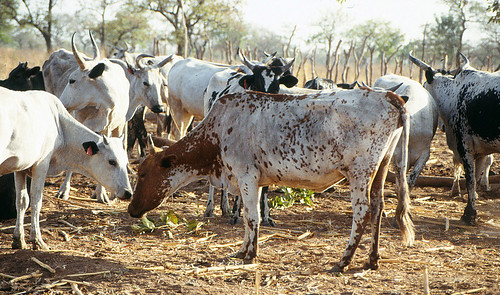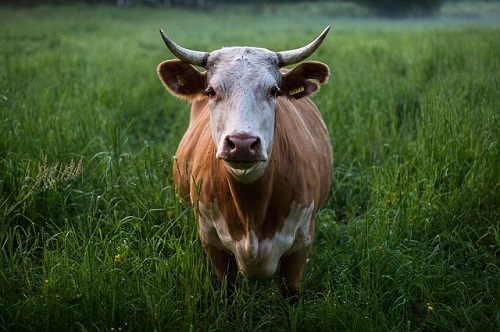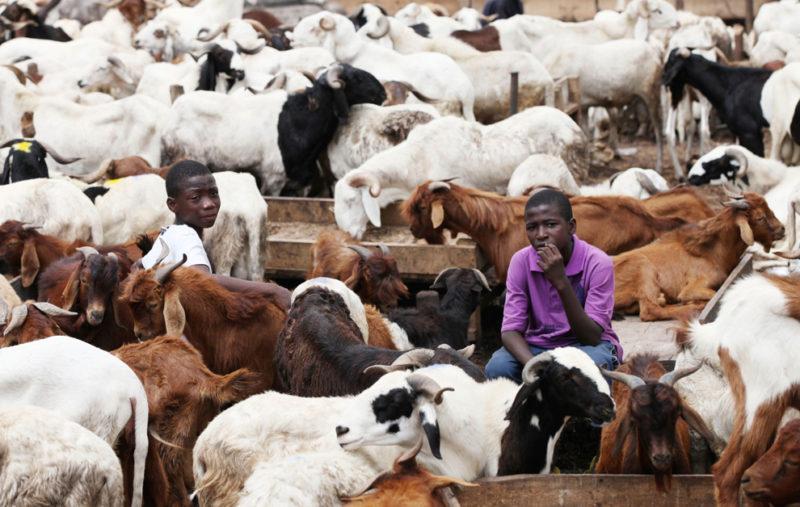There are two types of bloat in goats termed ‘frothy bloat’ and ‘gas bloat’. Frothy bloat is often a result of goats eating rich feeds or being suddenly introduced to large amounts of grain. The rumen becomes foamy and full very quickly. Gas bloat occurs as a natural process of rumen digestion, but bloat occurs when something blocks the gas from getting out.
Causes of Bloats
Some causes of bloat include:
- Sudden exposure to large amounts of new feed
- Exposure to rich grasses or legumes
- Lack of regular access to water
- Free range of unfamiliar pastures
- Blockages such as choking from greedy eaters
Signs of Bloat in Goats
Frothy bloat can occur fairly quickly within goats because this type of bloat is directly related to what the goat consumes and digests. A bloated goat will appear very fat usually on the left side of the spine which is a result of rumen distention and displacement of other digestive organs. The rumen will feel tight and springy due to the retention of gases, and the animal will be uncomfortable.
Frothy bloat can occur and cause the death of the animal within one to two hours of consuming the offending feedstuff. Gas bloat happens less frequently than frothy bloat, but occurs quite often with an animal that tends to choke on feed. Gas bloat in goats tends to resolve itself in most cases but can still cause a goat much pain and anxiety while the goat expels the gas slowly over time.
Signs of bloat include:
- Distended belly high on the left side in the lumbar area
- Excessive salivation
- Trouble standing or walking
- Laying down with a distended left side
- Signs of pain, crying, biting at sides
How to Treat Bloat in Goats
Treating Bloat in Goats With a Stomach Tube
Treating bloat in goats requires the use of special techniques and skills that the average goat owner might not possess. Since bloat can threaten an animal’s life, it would be wise for goat owners to talk to their veterinarian and learn to perform some of the basic techniques required in such an emergency. Since death can occur so quickly with bloat, the owner will need such skills to act fast and save the animal.
If the animal is not choking, and his esophagus is clear of obstruction, a stomach tube may be passed directly into the rumen. If the bloat is caused by gas, this will help clear the bloat almost immediately as the owner visualizes the rumen deflating. Frothy bloat will also require the use of a stomach tube, but will also need to be broken down with the use of mineral oil.
If the situation is caught early, and the animal is not yet in severe distress, an oral drench can be given to break down the bloat and allow the animal to pass the gas. Most oral bloat drenches can be found at vet stores or on Amazon and should be kept on hand for this type of emergency.
Treating Bloat in Goats with Trocharization
For goats in severe distress and dire need of assistance in order to survive, a small puncture can be made near the paralumbar fossa on the left side over the rumen. Using a trochar or large gauge needle, pressure in the rumen may be instantly relieved by allowing gas directly out into the open air.
This procedure should be limited to those skilled in performing trocharization procedures since the possibility of infection is very high. An unskilled owner can cause serious damage to the function of the rumen if attempting trocharization without assistance or at the very least, causes a raging infection of peritonitis. If any incision is made into the rumen, the animal should be put on antibiotics for several days.
How to Prevent Bloat in Goats
- Goats should be introduced to new feedstuffs slowly and never allowed to free range unfamiliar pastures for long periods of time. Since goats are browsers, they enjoy eating all types of plants, shrubs, grasses or vines and may consume too much.
- As always, goats should always have clean, fresh water available at all times.
- Feeding hay or small amounts of corn oil with pelleted feed can help reduce the chance of bloat.
- Confined goats should always have access to plain hay.
- A regular feeding pattern should be established if feeding goats pelleted feed since some animals are greedy and will readily choke trying to consume too much at once.
- Bloat can be avoided with careful feeding and husbandry strategies and if caught early, can be treated effectively



